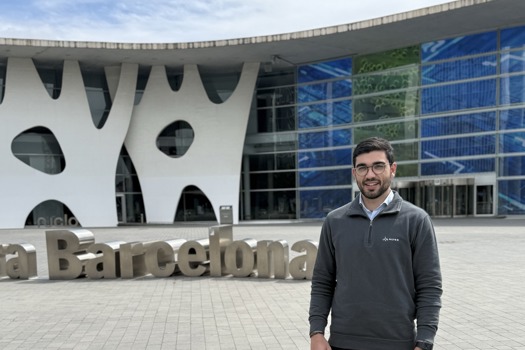Take the example of Gemini Print Finishing. Last summer, the £1.8m-turnover firm that David Tye founded 30 years ago, collapsed. In 2005 the firm, which provided a core service of saddle-stitching for long-run work, moved into direct mail finishing, spending £500,000 on new kit, including an inkjet system for personalised digital print.
But the shift came too late: not enough DM business came in to compensate for the rapidly waning stitching work, and 2005 was Gemini’s worst year since the early 1990s. On Gemini’s demise, a despondent Tye remarked that “the days of the medium- to large-sized print finisher with seven or eight stitching lines are now gone and they will never come back,” while joint managing director Richard Anstock put in that “people have ditched us for bog-standard work.”
Eight months on, two firms are rising from the Gemini ashes – and both have radically different business models, both from Gemini and from each other. Tye’s new start-up, Gemini Marketing Support Services (MSS), has taken a generalist approach, shying away from a single, core service in favour of a raft of finishing processes: collating, shrink-wrapping, padding, drilling, miniature folding, handwork and fulfilment. Meanwhile, Nottingham Trade Finishers (NTF), run by Anstock, is heading for a niche market – direct mail. NTF has bought some of the original Gemini assets including three MBO folders, gluing kit and a Muller Martini stitching line, but significantly, has also invested in new kit: a remoist gumming line and a Jetmail inkjet mail processing line.
Both firms have rejected the business model that trade finishers of even a decade ago might have found viable: a raft of high-capacity, largely manual makeready machines providing bread-and-butter services such as stitching and perfect binding. NTF’s target sector of DM is still a slowly-growing market, while Gemini MSS has put its eggs in several different baskets, including higher-value services like shrink-wrapping and miniature folding.
Bog-standard work, in Anstock’s argot, just doesn’t pay any more: both men have recognised that more efficient finishing kit has been brought in-house by the printers who would, 10 or 15 years ago, have been the trade finisher’s primary customers. Margins on bog-standard work went through the floor years ago; any finisher relying on such work was doomed to failure. Trade finishers have had to adopt a very different strategy to survive, and in this short-run age, value-adding is the key, not quantity.
It seems that the first decade of the new millennium has been the birthing-ground for a new breed of trade finisher: one that recognises the cost of petrol and the time penalty of sending work out rather than keeping it inhouse. Both Gemini MSS and NTF embody the principle of providing a service that can’t be given inhouse – either because it’s a specialist offering, or because a job might require too many services to get under one roof. Both are adding significant value to their clients’ work, and both, as a result, are giving themselves a better basis for success than the old, outdated model of a decade ago.
TWO-MINUTE TAKEAWAY ON TRADE FINISHING
• Gemini Print Finishing went into liquidation in the summer of 2006 because its core offering of stitching was no longer relevant to the market
• The two firms that emerged subsequently have different business models, both from Gemini and from each other
• One company has taken a generalist approach, spreading its risk over several finishing fields including some higher added-value processes
• The other company has invested heavily in DM kit to enter a specialist market that’s still growing, albeit more slowly than ten years ago
• Basic finishing work such as stitching can no longer be relied upon as the backbone of a trade finisher’s offering
• A new breed of trade finisher is rising that can add value to a client’s work, either by a multiplicity of processes, or by specialising in complex work








